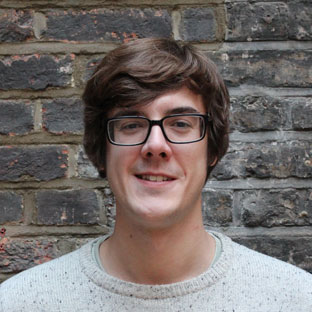The influential American folk singer Pete Seeger died this week, aged 94.
In an official statement, President Obama said: ‘Pete Seeger believed deeply in the power of song. But more importantly, he believed in the power of community – to stand up for what’s right, [and] speak out against what’s wrong.’
It’s an interesting definition of ‘community’, conceiving of the notion as one that is inherently political and provocative. This conception is perhaps rooted as much in Obama’s early career as an activist and Community Organiser in poor Chicago neighbourhoods as it is by Seeger’s musical calls-to-arms in songs that raged against injustice, fascism and inequality.
Seeger’s work was ardently political, with songs like Solidarity Forever, We Shall Overcome and Where Have All the Flowers Gone demanding workers’ rights, advocating social struggle and lamenting war. The live performance of these songs was as significant as their lyrical content, with Seeger and his banjo often making appearances at strikes, protests and political meetings where he encouraged audience members to participate in communal singing as a way of bonding. The music critic Andy Gill writes: ‘Seeger viewed songs as cement that helped glue communities together when they were under stress and he tirelessly spread the word in person, playing local union halls, assembly rooms and schools; even when blacklisted during the era of [anti-Communist] US Senator Joseph McCarthy.’ For Seeger, politics and community were inseparable as people came together for and through political campaigns. Injustice was a problem and cooperation was the solution: ‘the whole world will have to do something about the fact that the rich are getting richer and the poor are getting poorer,’ as he once said.
He believed in the power of community – to stand up for what’s right, [and] speak out against what’s wrong
The contemporary, British, conception of ‘community’ – including within the RSA’s Connected Communities action and research programme – is on the face of it comparatively apolitical. In contrast to Obama’s definition of community as akin to activism, examples people commonly point to when they talk about what community is, such as the Olympics, street parties, or Big Lunches, do not typically include ‘standing up for what’s right’ or ‘speaking out against what’s wrong’ as a central feature. Similarly, the RSA’s pilot projects in our Connected Communities sites do not explicitly engage with the political themes of Seeger’s protest songs: Social Mirror connects isolated people to local leisure and health activities, Murton Mams provides a venue and a time for single parents to socialise, and trial projects in South East London encouraged New Cross residents to have meaningful conversations with other people in the local area.
Why has our understanding of ‘community’ changed in this way? And have we really lost so much ground since Seeger’s mid-20th century heyday that where community work once meant people cooperating to achieve radical social and economic gains, it now means merely encouraging people to find out who lives next door?
One explanation may be that the shape of society has changed in a way that makes social life feel more atomized and alienating. The decline of many localised dominant industries mean it is now less likely that neighbours automatically enrol in the same community of interest by joining the same labour force, and few of us can now draw on common identities as easily Seeger could when he sang, ‘My daddy was a miner and I’m a miner’s son.’ Technological and economic shifts, changes in the way we work, the decline of participation in organised religion, and increasing rates of migration within and between countries mean that it may be harder for people to find common ground with others in their immediate geographic area based on obvious shared interests.
However, in such a context, where membership of a local community can no longer be assumed on the basis of shared labour interests for example, saying ‘we are here, we know each other and will support each other’ is arguably radical in itself. Last May, Professor David Morris spoke at the RSA about the radical and important stance of those who promote the idea of community ‘in a context in which the very existence of communities often seems to be doubted’ and in a society where a certain ‘tolerated harshness’ has become a cultural norm. In a recent BBC Radio Four documentary presented by Giles Fraser (which featured the RSA’s Social Mirror project), the social geographer Jane Wills argued for an understanding of the radicalism and importance of the modern, apparently apolitical form of community organising. She lauded the achievements of initiatives such as Citizens UK that allow a white Christian to meet the Imam of a local mosque and realise that, despite a lack of immediately obvious shared interests, they can get along and begin to look out for each other in the neighbourhood.
As Seeger’s lyrics repeatedly insisted, in order for people to be in any position to work together for social change, a sense of community cooperation and support is essential. It may be that such a sense was more easily assumed in Seeger’s day and that ready-formed communities could jump directly to the hard socio-economic issues that needed changing – or it may simply be that people were more prepared to imagine away the differences and fractures that existed in society. With hindsight, the levels of solidarity rhapsodised in Seeger’s songs seem illusory given what we know about race, gender and sexual minority relations of the time. And if solidarity was such a natural and indisputable thing, why did there need to be so many songs arguing for its benefits? As Giles Fraser explored in his documentary series, there is often something nostalgic, pious, and even exclusionary and conformist in the notion of a community. Such intolerance of individuality is evidenced in some of Seeger’s songs which viciously criticise ‘scabs’ who operate according to individualist rather than communitarian moral codes, and in his behaviour when he allegedly attempted to take an axe to the power supply when Bob Dylan famously crossed the ultimate folk taboo by plugging in an electric guitar at the 1965 Newport Folk Festival.
Perhaps on the occasion of the death of a man whose impassioned songs inspired countless musicians, we can reconcile Seeger's outright radicalism and the apparently softer aims of those who share his belief in the power of community today. The political and transformative social aspect of ‘community’ that Obama associates with Seeger is still inherent in the concept. But today there is greater a greater sense of realism regarding the difficulties communities face in becoming connected, and the necessary – and still radical - first steps of making contact across social divides, developing empathy where it might not immediately flow, and offering support to others from outside of our immediate shared-interests.

Related articles
-
Article: Connecting the dots
Matthew Parsfield
Building communities is not only intrinsically good; it can benefit the economy and public services too. Matthew Parsfield reflects on our 'Connected Communities' work.
-
The value of connected communities
Matthew Parsfield
Today we launch the final report from our five year Connected Communities programme.
-
Blog: Let's get down and talk dirty
Steve Bodycomb
How language can to used to help or hinder a person's recovery journey from substance and alcohol misuse




Be the first to write a comment
Comments
Please login to post a comment or reply
Don't have an account? Click here to register.